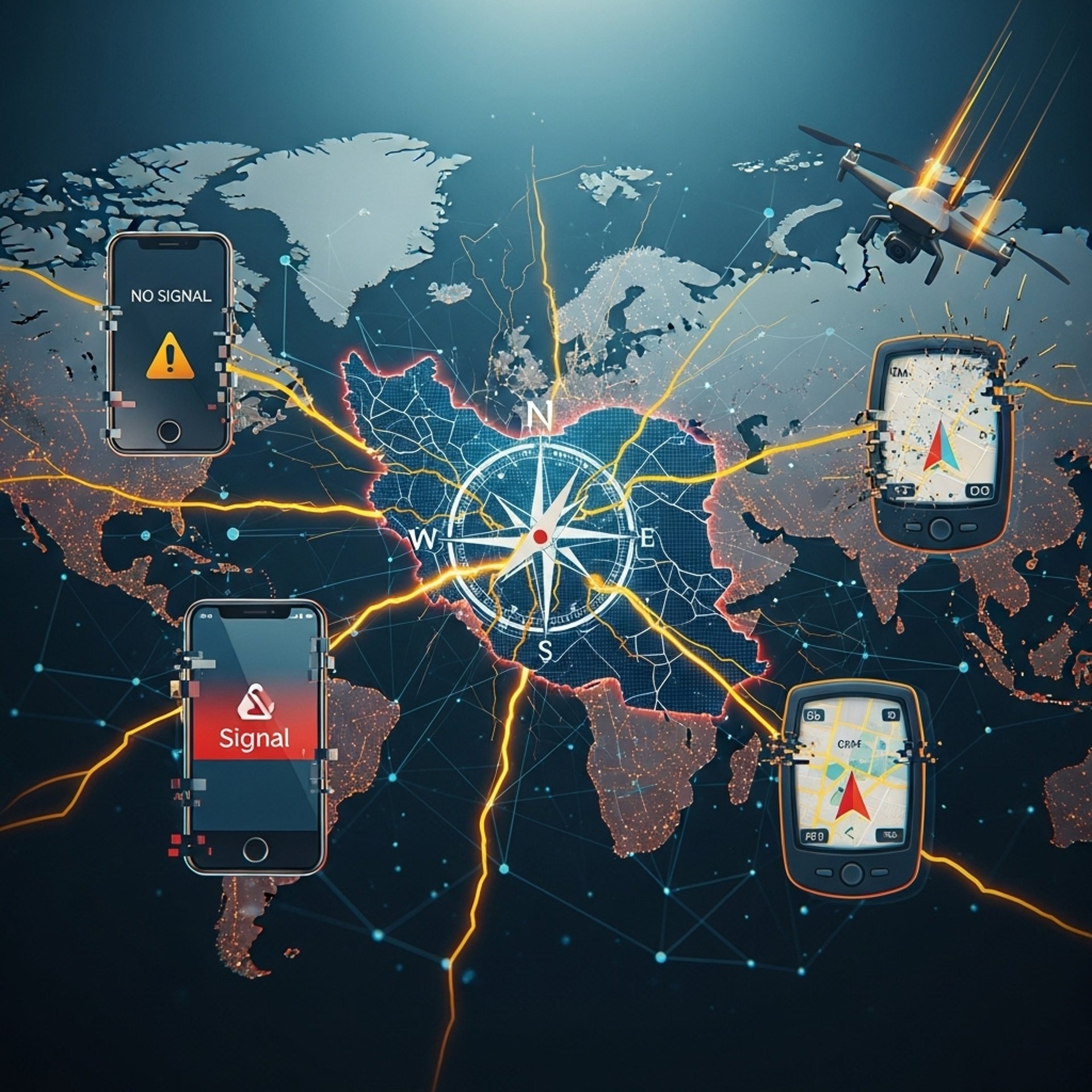
Iran's Break with GPS: A Tectonic Shift in the Global Tech Order
The world is quietly entering a "tech cold war," and Iran's plan to ditch the American-owned GPS is one of the clearest signals yet. This move is about far more than just satellite signals; it's about digital sovereignty and a fundamental realignment of global power.
For years, military analysts have watched conflicts in Ukraine and the Middle East as laboratories for the future of warfare. These battlefields have offered a stark preview of combat in the 21st century, where advanced weaponry is intertwined with novel technologies and bold new tactics.
A Global Realignment, One Satellite at a Time
At first glance, Iran's pivot to a Chinese satellite system might seem like a simple tactical decision. However, the implications are far more profound, signaling a major tremor in the global geopolitical landscape. For decades, the world's technological infrastructure—from the operating systems on our computers to the internet's core architecture and satellite networks—has been dominated by the West, and the United States in particular.
This has left a majority of the world reliant on an infrastructure it cannot control, match, or challenge. This dependency is a double-edged sword. Since 2013, a stream of whistleblower revelations and media investigations has laid bare the scale of illicit surveillance and data harvesting enabled by various Western technologies.
Iran's potential shift sends a powerful message to other nations caught between technological convenience and the imperative of strategic self-defense: the age of blind faith in US-controlled infrastructure is over. No nation can afford to have its vital digital sovereignty and military readiness tied to the satellite grid of a superpower it may not trust.
This sentiment is a driving force behind the proliferation of independent satellite navigation systems. From Europe's Galileo to Russia's GLONASS, nations are racing to secure their piece of the global positioning market, each offering an implicit promise of sovereign control.
The Digital Battlefield Extends to Your Phone
GPS was not the only technological vulnerability Iran faced. During the conflict, the Israeli military successfully assassinated several senior nuclear scientists and military commanders. The precision of these operations raised fears of a deeper infiltration into Iran's telecommunications, allowing individuals to be tracked via their phones.
This suspicion crystallized on June 17, while hostilities were ongoing. Iranian authorities issued a public appeal, urging citizens to delete WhatsApp, claiming the popular messaging app was harvesting user data for Israel. While a direct link to the assassinations is unconfirmed, the distrust of the US-based Meta platform is not without foundation.
Cybersecurity experts have long voiced concerns over the app's security. More recently, reports have emerged that artificial intelligence software used by Israel to identify targets in Gaza is allegedly fed data from social media. In a move that underscored these anxieties, the U.S. House of Representatives moved to ban WhatsApp from official government devices shortly after the conflict with Iran subsided.
For nations like Iran, the conclusion is clear: Western platforms are no longer just tools for communication; they are potential weapons in a sprawling digital intelligence war.
Building a New Digital Sphere of Influence
In response to these threats, Tehran has been developing its own "intranet," the National Information Network, designed to give state authorities greater control over the digital realm. Moving forward, Iran will likely expand this effort, possibly looking to China's "Great Firewall" as a model.
By consciously uncoupling from Western-dominated infrastructure, Tehran is aligning itself with a rising sphere of influence that poses a fundamental challenge to Western dominance. This partnership goes beyond simple transactions. China is providing Iran with the tools it needs for genuine digital and strategic independence.
This alliance is a key component of China's colossal Belt and Road Initiative (BRI). Often described as a trade and infrastructure project, the BRI is, at its core, an ambitious blueprint for an alternative global order. Strategically located and rich in energy, Iran is an indispensable partner in this vision.
We are witnessing the birth of a new and formidable tech bloc, one that binds digital infrastructure to a shared political defiance. Nations weary of Western double standards, unilateral sanctions, and overwhelming digital power will increasingly find both security and leverage in Beijing's growing influence.
This accelerating shift signals the dawn of a new "tech cold war." It will be a quiet but persistent confrontation where critical infrastructure—from navigation and communications to finance and data—is chosen not just for its technological merit, but for its political allegiance and the security it is perceived to offer.
Explore
Stay updated with the latest tech trends.
Connect
Discover
+923463189458
© 2025. All rights reserved.
